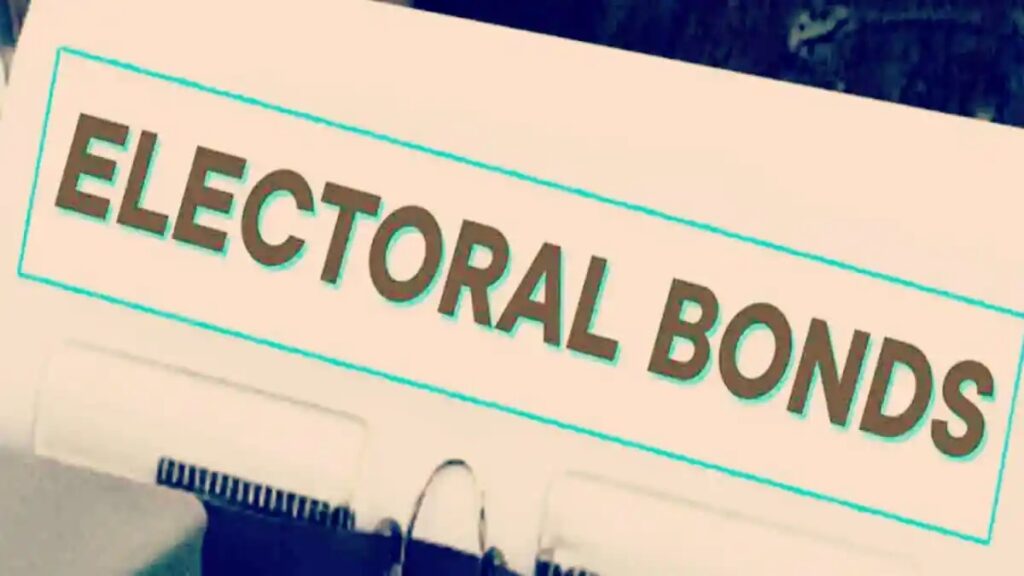Electoral Bonds Scheme The Biggest Scam Of Independent India: Congress
Mar 16, 2024 | Pratirodh Bureau
Congress' Jairam Ramesh made the remarks a day after the ECI put up the data on electoral bonds on its website. "This is the biggest scam of independent India. We have the option to move the Supreme Court...We will go to the people's court," he said.
On Friday, Congress MP and general-secretary Jairam Ramesh described the electoral bonds scheme as the “biggest scam of independent India”. He also said that the data shared by the Election Commission of India (ECI) on it was “incomplete”.
Ramesh said the Congress was not against electronic voting machines (EVMs). However, it wants the use of voter verifiable paper audit trails (VVPAT) to be included in the poll process to make sure that voters know their vote was cast correctly.
Addressing a press conference at Wada in the Palghar district of Maharashtra, Ramesh said that his party has been seeking an appointment with the ECI since 2023, but has not been granted an audience with the chief election commissioner (CEC) yet. The former Union minister asked, “Why is the ECI scared to meet Opposition parties?”
While referring to the electoral bonds data published on the Election Commission’s website, Ramesh said the details were incomplete. He said, “There are four categories in the list — those who purchased the electoral bonds and got government contracts, those who purchased bonds due to threat of investigating agencies, those who purchased bonds as bribe to get contracts, and purchasing through shell companies.”
Ramesh made the remarks a day after the ECI put up the data on electoral bonds on its website. “This is the biggest scam of independent India. We have the option to move the Supreme Court…We will go to the people’s court,” he said.
Billionaire Sunil Bharti Mittal’s Airtel, Anil Agarwal’s Vedanta, ITC, Mahindra and Mahindra,stell tycoon Lakshmi Mittal and a lesser-known company — Future Gaming and Hotel Services — were among the prominent buyers of the now-scrapped electoral bonds for making political donations.
The State Bank of India (SBI) was the authorised seller of electoral bonds. It has said in its data that a total of 22,217 electoral bonds of varying denominations were purchased by donors between 1 April, 2019 and 15 February 2024, out of which 22,030 were redeemed by political parties.
Anonymous Electoral Bonds were a mode of funding for political parties in India from their introduction in 2017 till they were struck down as unconstitutional by the Supreme Court on 15 February 2024. Following their termination, a five-judge bench headed by the Chief Justice directed the State Bank of India to hand over the identities and other details of donors and recipients to the Election Commission of India, which was in turn asked to publish them on its website.
The scheme was introduced in The Finance Bill, 2017 during the Union Budget 2017-18 by then Finance Minister Arun Jaitley. They were classified as a Money Bill, and thus bypassed certain parliamentary scrutiny processes, in what was alleged to be a violation of Article 110 of Indian constitution. (According to the Indian Constitution, Money Bills are legislation that are exempt from the requirement of being “passed” in the Rajya Sabha, as the upper house is only permitted to offer commentary on such bills introduced in Lok Sabha). Jaitley also proposed to amend the Reserve Bank of India (RBI) Act in order to facilitate the issuance of electoral bonds by banks for the purpose of political funding.
Although introduced in early 2017, the Department of Economic Affairs in the Ministry Of Finance notified the Electoral Bond Scheme 2018 in a Gazette only on 2 January 2018. According to an estimate, a total of 18,299 electoral bonds, equivalent to a monetary value of ₹9,857 crore, were successfully transacted during the period spanning from March 2018 to April 2022.
On 7 November 2022, the Electoral Bond scheme was amended to increase the sale days from 70 to 85 in a year where any assembly election may be scheduled. The decision on Electoral Bond (Amendment) Scheme, 2022 was taken shortly prior to the assembly elections in Gujarat and Himachal Pradesh, while the Model Code of Conduct was implemented in both the states.
